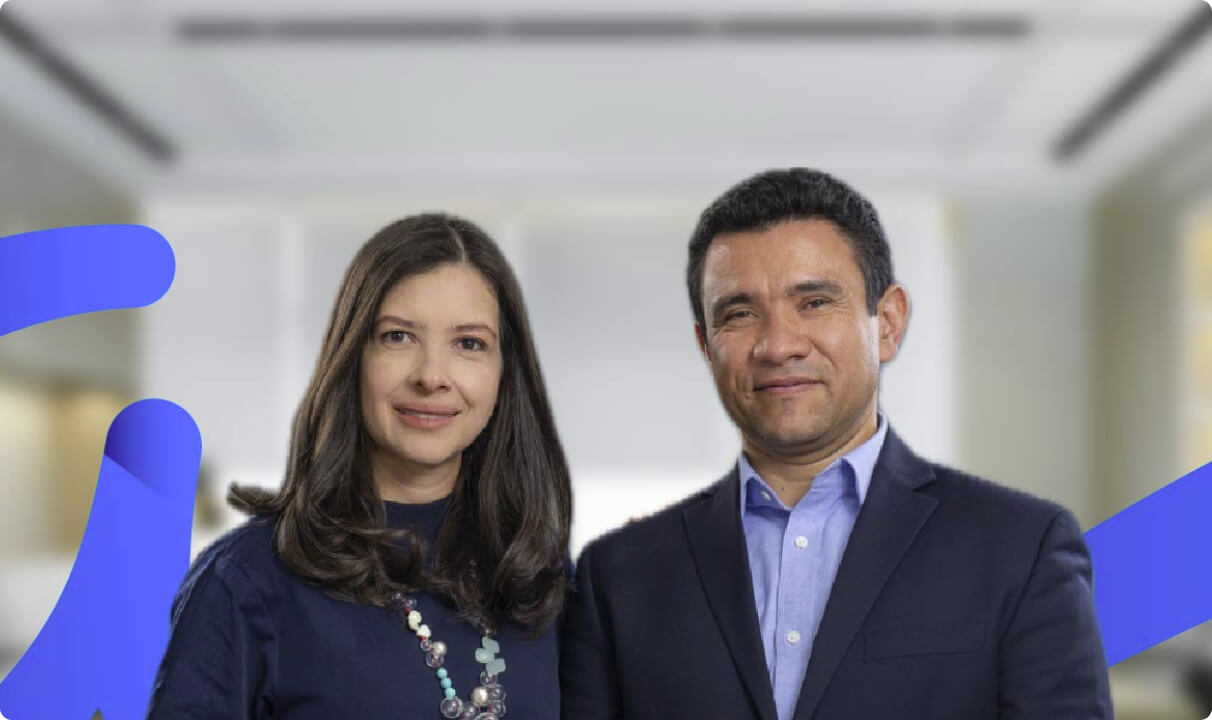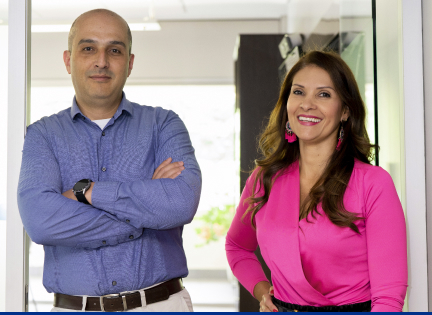Carolina Rojas Hayes
Member of ISA’s Board of Directors
Guest blog
Born in and surrounded by a multicultural family: born in Barranquilla but raised in Bogotá, British mother married to a Cali man from a Chocoan family. This is what only those close to Carolina Rojas Hayes, the new member of ISA’s Board of Directors, know about her. She is an economist with a master’s degree in Public Policy. She has extensive knowledge and experience in the energy mining sector, recognizes the value of working from and for the territories, and has been vocal on equity issues throughout her career. She is a skilled, committed woman who finds in cooking, travel and friends the balance required to remain successful in her work and in her role as an educator.
ISA: Carolina, tell us a bit about your background, how does an economist with extensive experience in multilateral banking enter the energy sector?
Carolina: I have always liked the public sector. I held several positions in the Ministry of Finance. There, I had the privilege of leading very important processes to obtain resources for structural reforms in the country in different sectors that included transportation, education, and energy.
Later, I had the opportunity to join the National Mining Agency, where my career in the mining and energy sector began. Both sectors largely operate in rural or remote areas of the country, and I had the opportunity and the privilege of traveling throughout Colombia, learning about operations of all sizes, and helping these operations and communities to witness the benefits of the sector in their territories. This work allowed us to lead strategies such as mining formalization instruments, gender guidelines, climate change, the reform of the general royalties system, relations, and human rights. I also learned that the mining and energy sector is part of the territories, and entities must ensure better conditions for the territories and communities where they operate.
I was vice-minister of Mines and worked at the World Bank, the Inter-American Development Bank, and the Development Bank of Latin America (CAF), among others.
ISA: When did your interest in diversity and equity begin?
Carolina: The Ministry of Mines and Energy was a wonderful opportunity for me because that is where public policies are made. One of the most relevant achievements was undoubtedly the progress made in the gender equity agenda. The energy mining sector is highly male-dominated. It is cultural. Not many women are prepared for these types of jobs because they do not work in science or other areas, or because the sector is associated with men. There is a great opportunity to increase women’s participation in these sectors. In Colombia, the total participation of women in the energy sector is 29%. There is a lot to do.
ISA: And what is the value of including women in these sectors?
Carolina: Including women in strategic relations of the energy mining sector is key to understanding the impacts of the sector on communities and how they can be adequately mitigated. I am convinced that gender equity improves society, not only for women but also for men, as they can have new, different roles closer to their families.
ISA: What do you think are the challenges that women face in the industry, besides the corporate challenges?
Carolina: There are global cultural challenges. It is a sector believed to be for men, but I have met incredible women in all roles in the mining sector, who prove that it is possible: from women operators of heavy mining equipment to engineers, geologists, among others. In the energy mining sector, for example, work is done far from people’s homes, which poses challenges for women who are starting families.

ISA: But this applies to all levels of an organization…
Carolina: When talking about gender equity, people often mean executive and senior roles, but in my opinion, there is a huge opportunity in operational roles. This does transform communities, and I have seen it: women working in the mining sector, who become independent. This also benefits companies, as they are given a license to operate more strongly if they include women in the base.
ISA: So, the challenge for companies is no less…
A few days ago, I was talking to a male colleague and he told me “look, in the mining and oil sectors they have these schemes of working two weeks and coming back.” There is nothing less familiar, either for a man or a woman, than such a scheme. Why are we keeping men from being with their children every day?
It is a challenge for the sector to improve the quality of life of men and women and to retain the talent, which is fundamental there. In this regard, I am glad that ISA is making this journey through the EQUIPARES Seal measurement. There is the roadmap of how to address recruitment and how companies create the conditions for women to remain in the sector.
ISA: What do you think a woman brings to a company?
Carolina: I believe that women can contribute the same as men. Gender equality allows companies to have a level playing field to hire the best people, because it is a matter of numbers. Some studies say that when women operate heavy machinery, for example, maintenance costs are lower because they are more careful. Simply having different visions provides different contexts for solving problems. This is reflected in finances and profitability. It’s more of an opportunity issue; everyone must contribute.
ISA: So, the equity that we need is not necessarily a matter of gender?
Carolina: There is a wide range of diversity in Colombia and in these regions. There is a lot of work ahead to be more inclusive in this regard. Diversity of ages, experience, regions, sexual preferences. All of this generates contributions for the organizations. There is much more to do around disability; for example, diversity in general is a great asset to organizations and society.
ISA: In your other positions, have you continued to work for this equity?
Carolina: I have continued to work on this cause. I am on the board of directors of Women in Mining, a volunteer organization committed to it. Also, as a consultant, I have continued to work on this issue, because I am convinced that the world will be better this way. The challenge ahead for this discussion is not only to talk about gender but also about diversity, in a broader sense. Diversity is important because different points of view offer different solutions to problems, and that generates a lot of value. That is precisely an insight that I bring to the ISA Board of Directors.







